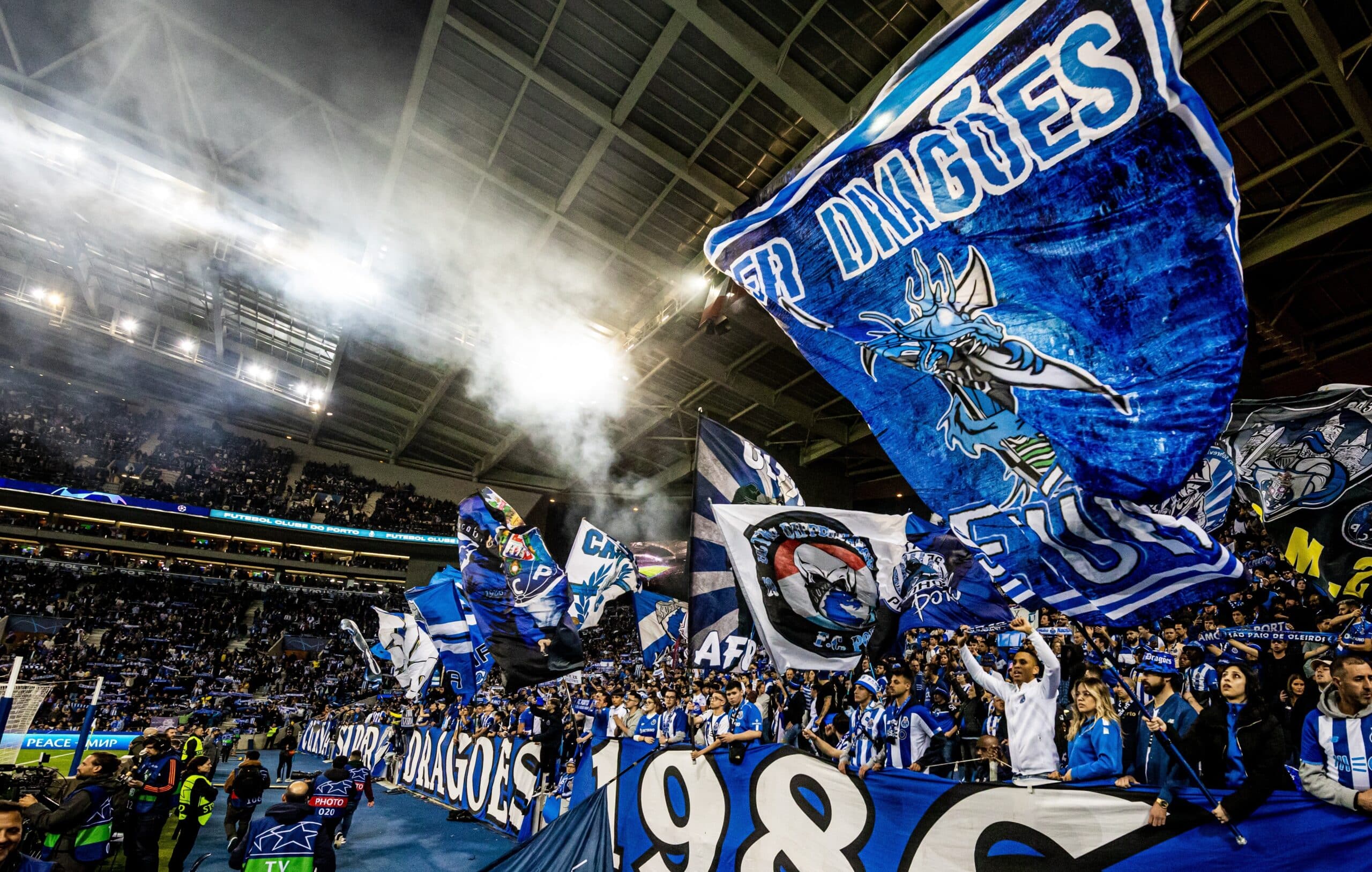After a comeback performance in the second leg of the playoff round in the first-ever…
Groundhopper Guide to FC Porto

Let Groundhopper Soccer Guides introduce you to FC Porto of Portugal’s Primeira Liga.

The popular blue and white stripes of FC Porto. (Image: Clément Bucco-Lechat, CC BY-SA 3.0, via Wikimedia Commons)
Introduction to Futebol Clube do Porto
FC Porto are considered one of the ‘Big Three’ of the top flight of Portuguese football along with Lisbon clubs Benefica and Sporting CP. All three clubs have played in every season of the Primeira Liga since it was founded in 1934.
The Dragons have collected the second-most trophies of all the Portuguese clubs, including 29 Primeira Liga titles, and were undefeated in two seasons (2010-11 and 2012-13).
FC Porto’s History
The club was founded in 1893, and one of its first-ever matches was attended by Portugal’s King Carlos I and Queen Amelie of Orleans in 1894. The club went through a period of inactivity, but was revived in 1906 by new owners.
Their first team trophy came in 1911, and the club won many regional championships heading into the 1920s. Porto was a founding member of the top flight of Portuguese football, Primeira Liga, and won the first two titles. They currently hold the Portuguese record with five straight league titles (from 1994-95 to 1998-99).
Porto have employed successful Premier League managers Bobby Robson (1994-96) and Jose Mourinho (2002-04). Mourinho’s 2003-04 squad defeated Monaco (France) in the Champions League final, 3-0.
On the international level, Porto have claimed seven titles including a pair of major trophies in the Champions League/European Cup in 1986-87 and again in 2003-04. They are tied with Bayern Munich the third-most appearances in the Champions League group stage with 24, behind only Barcelona and Real Madrid (25). They reached the round of 16 in the 2022-23 season.

A look at FC Porto’s trophies from 2004. (Image: Threeohsix, CC BY-SA 4.0, via Wikimedia Commons)
Porto’s Stadium, Estadio do Dragao
Porto have played their home matches at Estadio do Dragao since 2003. The stadium was built to replace the club’s 50-year-old former ground. Construction coincided with Portugal’s designation as the host country for Euro 2004. The new stadium hosted the opening ceremonies and four matches in the tournament.
The first game in the 50,431-seat venue took place against FC Barcelona in 2003, which was Lionel Messi’s professional debut.
A unique feature of the stadium is the 21,000 square meters of azulejos, the typical white and sky-blue Portuguese ceramic tiles.

Porto’s stadium was built for Euro 2004. (Image: Joaoyoficial, CC BY-SA 4.0, via Wikimedia Commons)
The City of Porto, Portugal
Porto is the second-largest city in Portugal. It is located along the Douro River in the northern part of the country. The city center is a considered a National Monument in Portugal and is a designated World Heritage Site. The history of the region dates back to 300 BC.
Port wine, one of Portugal’s biggest exports, was named for the city of Porto. The city is also home to one of the largest synagogues in Europe, Kadoorie Synagogue, which opened in 1938.

Porto is located along the Douro River. (Image: Krzysztof Golik, CC BY-SA 4.0, via Wikimedia Commons)
2023-2024 Champions League Schedule
Porto lost to Arsenal in the Champions League round of 16.
Have a look at the complete 2023-24 Champions League schedule.
How to Watch Champions League Games in the U.S.
We have a separate post about how to watch all the Champions League fixtures on TV in the U.S., but your best resource is Paramount+. fuboTV also offers live streaming for a huge number of games around the world.




Post Comments